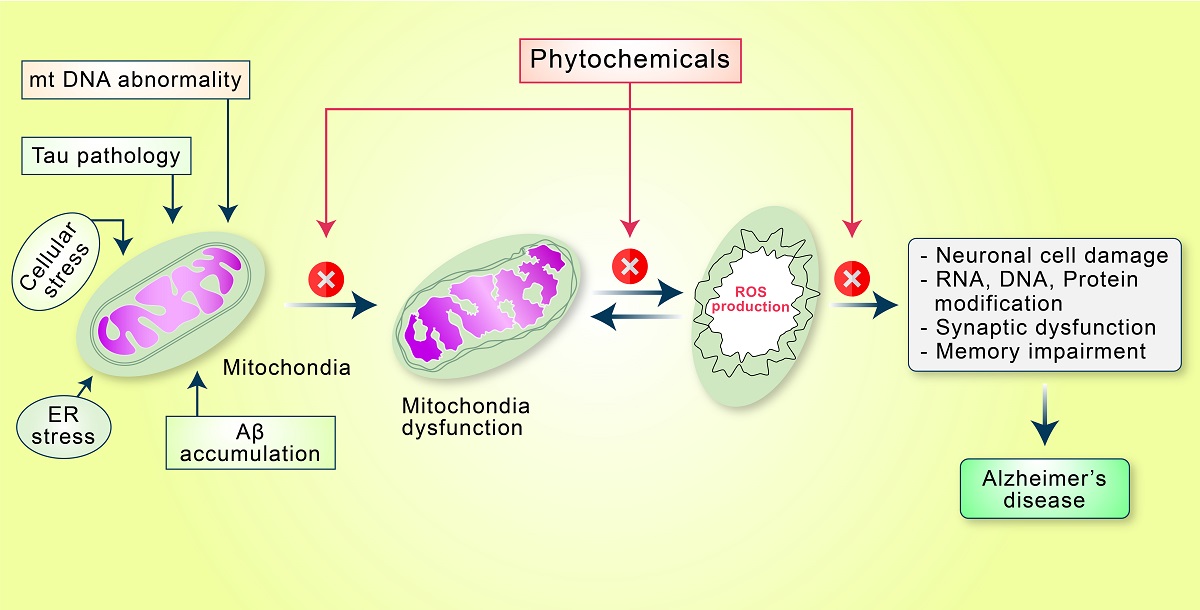Alzheimer’s disease (AD) is a progressive neurodegenerative disorder characterized by a decline in cognitive function with neuronal damage. Although the precise pathobiology of AD is still elusive, accumulating evidences suggest that mitochondrial dysfunction is one of the underlying causes of AD. Mutations of mitochondrial or nuclear DNA that encode mitochondrial constituents may cause mitochondrial dysfunctions. In particular, dysfunction of electron transport chain complexes along with interactions of mitochondrial pathological proteins are associated with mitochondrial dysfunctions in AD. Mitochondrial dysfunction causes an imbalance in reactive oxygen species, leading to oxidative stress (OS) and vice-versa. Neuroinflammation is another potential contributory factor to induce mitochondrial dysfunction. Phytochemicals or other natural compounds have the potential to scavenge oxygen free radicals and enhance cellular antioxidant defense system, and thereby protect against OS-mediated cellular damage. Phytochemicals can also modulate other cellular processes, including autophagy and mitochondrial biogenesis. Pharmacological intervention through neuroprotective phytochemicals can, therefore, be a potential strategy to combat mitochondrial dysfunctions as well as AD. This review focuses on the role of phytochemicals to mitigate mitochondrial dysfunction in the therapy of AD pathogenesis.

